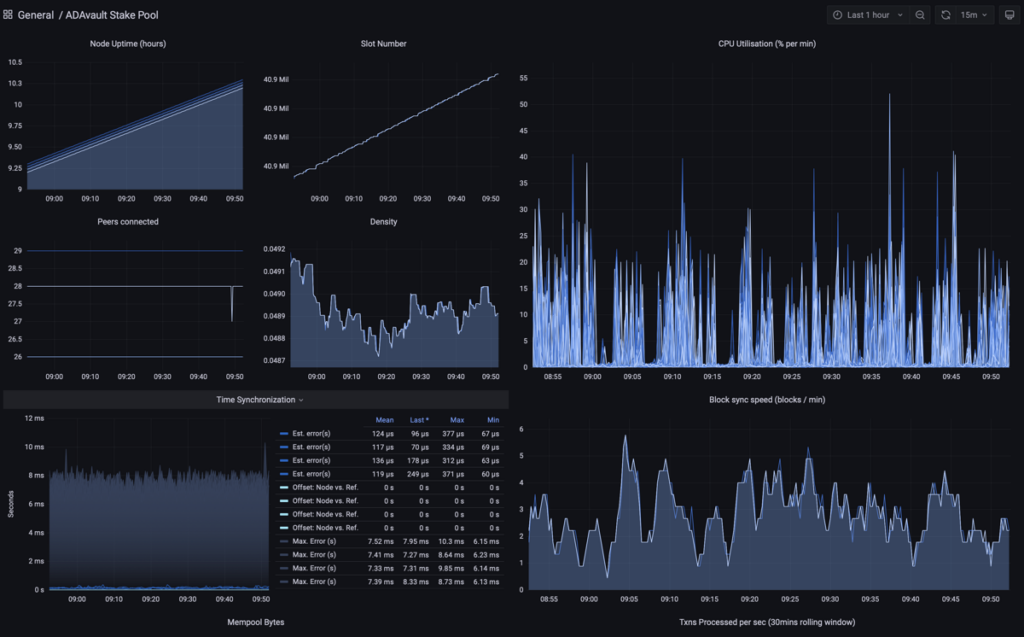
We believe Cardano represents one of the best opportunities to empower people around the world who do not have open access to identity, banking, insurance and other financial services. These foundations have the potential to transform and improve the lives of billions of people during the 21st century.
The ADAvault founders bring deep software and infrastructure development experience, gained from protecting some of the largest insurers, banks, exchanges, and payment services.
We run a limited number of pools, and our fees will always be fair. As the Cardano system grows we will extend our services to include non-custodial vaulting and escrow options. We participate and contribute to the Cardano community.
Stake history
Total ADA staked to all ADAvault pools per epoch.
Delegator history
Total delegators to all ADAvault pools per epoch.
Pool Details
ADAvault is an independent operator focused on delivering highly secure, decentralised and reliable Stake Pool infrastructure.
Design
ADAvault uses bare metal servers, linux hardened builds, dedicated secure racking, low latency fiber optic connectivity, hardware firewalls, fault tolerant design and UPS protection. Infrastructure is built in line with the Cardano reference architecture with multiple relay nodes, separate Block Producing Nodes (BPNs), and cold storage for keys.
Power
All ADAvault components are powered by 100% carbon neutral renewable energy from a certified green energy supplier tariff. We also pay for trees to be planted each year each of which will absorb 300kg of carbon as they grow as well as providing a habitat for wildlife. We have donated 5,000 trees to the Cardano Forest.
Security
We are very focused on privacy and security. System operations and design is aligned to the NIST Cybersecurity Framework. We use Qualys for vulnerability scanning and Cloudflare as our Web Application Firewall. Our SSL Labs security scan passes with rating ‘A’.
Resilience
ADAvault has a resilient topology with a cluster of relays connected to active Block Producing Nodes (BPNs), with passive BPNs in warm standby (synching but not producing blocks). We swap the active nodes for maintenance (security patching, node upgrades, and hardware changes).
We have a secure Disaster Recovery site which can be used in the event that the main site is affected for a prolonged period. Failover to the DR site is regularly tested to ensure that the process operates as designed.
Software versions
The relays and BPNs are running Node 10.5.3. All hardened builds used for ADAvault infrastructure are based on stable (long term support) operating system versions. We use a combination of Ubuntu, FreeBSD & Rocky Linux.
Observability
ADAvault uses BetterStack for alerting, plus Prometheus and Grafana to monitor infrastructure and collect data from nodes.

ADAvault has very low latency measurements for connectivity to peers. This is important as it increases the likelihood that the blocks forged by the stake pools are adopted on chain. Real time details are available from PoolTool.io who measure propagation delays across all registered pools.
We regularly review global peer connectivity, and are confident the pools have excellent performance characteristics for reliable block production.
